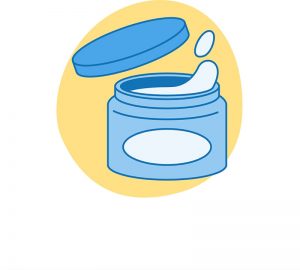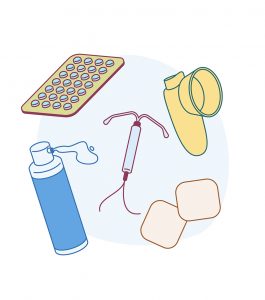Welcome back! Last week, we talked about a new study linking sleep to cancer. If you missed that blog and would like to catch up, click HERE.
This week, we are going to talk about a sensation that most of us have experienced but couldn’t identify. Have you ever felt something biting you, but when you looked, there wasn’t anything there? What causes that to happen? Let’s get into it…
First, let’s rule out the obvious
Mosquitoes. They bite you, inject their saliva into you (which is what causes the itching) and when they leave, you feel a sharp prick of the skin. You don’t necessarily ever even see them.
That’s not what this blog is about.
How many insects actually bite?
Let’s start there. Not many, according to Clean Kill Pest Control. Common troublemakers that DO bite are bed bugs, bird mites, lice, fleas, and even some forms of mosquitoes.
There are insects that don’t bite but which can cause reactions in humans.
For example, carpet beetle larvae have tufts of hair that are shaped like arrowheads at the end. These can pierce human skin, causing irritation.
In another example, canteen staff sometimes complain of ‘grocer’s itch’ which is caused by food mites.
There is even the possibility that what is being identified as bites are actually irritations caused by human itch mites, also known as scabies.
Sometimes it’s not bugs at all
The most difficult for the pest controller to deal with because they have nothing whatsoever to do with bugs. This is where an individual’s own propensity to react to external factors can really come into play. Our everyday lives are surrounded by potential contaminants, each with the ability to cause an irritation that may appear to be a bite. These include air pollution, bio-effluents, building materials, for example, fiberglass, carpet fibers, clothing, cosmetics, soaps and detergents, dirt in carpets and upholstery, and even static electricity generated on VDUs. Each of these can be reported as ‘bites’ in those that are susceptible.
Our stress can cause an issue
Another cause of ‘phantom biters’ are things we generate ourselves. Stress, acute anxiety, and conflict between two parties have all been known to trigger mystery bug attacks. There is even a psychosis known as delusory parasitosis, or monosymptomatic hypochondrial psychosis – an unshakeable belief that you are being attacked by insects. Less common in the workplace than the home, this is generated in the mind and will even lead to the sufferer collecting ‘evidence’ – often flakes of skin, floor debris, or wool rubbings. Sometimes, the power of suggestion, such as a letter sent home with your child from school stating there’s been an outbreak of lice will send you into a moment of thinking you feel something crawling in your hair.
But wait, there’s more
Ladies, did you know menopause can cause us to experience phantom bites? Yes, ma’am.
My Menopause Centre says that a symptom of menopause you may not have heard of is altered skin sensation. You may experience numbness or a loss of sensation, pins and needles, prickling, itchy skin, or burning in your hands and feet.
Some women experience a sensation of insects crawling over the skin (which is called formication). However you experience it, altered skin sensation can be connected to hormone imbalances, particularly the loss of estrogen experienced during menopause.
These symptoms can occur at any time during the menopause transition and may settle on their own.
What causes altered skin sensation?
Skin nerve function is affected by the changes to estrogen levels in your body that happen during perimenopause and menopause. Nobody is exactly sure why this happens – it could be related to blood flow or how the nerves send messages.
The quality of collagen in the skin changes as well, meaning your skin can become drier and less able to hold water. If the skin is dry, it is more prone to be itchy.
Kari Anne Wright can relate

How can altered skin sensations be treated?
Moisturizers and emollients can help with dry skin and reduce itching. Antihistamines may also help, and antihistamines that make you drowsy – such as Piriton (chlorpheniramine) – may be a good choice for you if itching is keeping you awake at night.

Hormone Replacement Therapy (HRT) may also help. It improves the quality of the skin and helps with dryness. In our clinic, we have seen changes in skin sensation improve once women start taking HRT, although there is a lack of wider general evidence to suggest this works for certain.
Exercise and relaxation may also benefit you, particularly if you feel that you’re starting to become anxious and preoccupied with your symptoms.
We recommend that you always discuss any changes in skin sensation with your doctor because there are many other causes of these symptoms beyond menopause, such as diabetes, vitamin B12 deficiency, and changes to thyroid function. You may need blood tests to rule them out. Itching can be a factor in many skin conditions too, so it’s important to see a doctor, particularly if you have any sort of rash.
The University of Georgia weighs in
Some people are haunted year-round by biting bugs that aren’t even there.
They suffer from something called delusory parasitosis, said Nancy Hinkle, an entomologist with the University of Georgia College of Agricultural and Environmental Sciences.
“We’re finding it in all segments of the population — all age groups, all socioeconomic levels,” Hinkle said. “And the incidence seems to be very high.”
Delusory parasitosis is a real condition first described in medical literature more than a century ago. Hinkle said the illness isn’t uncommon at all.
Other medical causes
Nancy Hinkle goes on to say that many medical ailments can also cause these symptoms, such as heavy metal poisoning, exposure to toxins, and diseases like AIDS, anemia, carcinoma, diabetes, hyperthyroidism, lupus, lymphoma, and multiple sclerosis.
Nutritional deficiencies, allergies, drug reactions, menopause, niacin overdose, rheumatoid arthritis, stress, and even vitamin overdoses are known to trigger it, she said.
Symptoms include the sensation of biting, stinging, or itching on the skin. Hinkle said people will often feel something crawling inside their skin and will dig into the skin trying to find and dislodge whatever’s causing it.
“Unfortunately, this can produce a lot of damage to the skin,” she said.
Feels like …Chigger bites are close to what sufferers might feel. People who have been chigger-bitten can relate to the feeling that something’s still in there. But delusory parasitosis sufferers feel something different, she said, as if that something under their skin is moving or crawling around.
People will treat the condition in a number of ways. “Some will spend inordinate amounts of time washing and cleaning their bodies and their homes, assuming the infestation is coming from off the body as well,” Hinkle said.
“They will then treat their bodies with … gasoline, kerosene, solvents, harsh cleaning compounds, even pesticides,” she said, “which, of course, is very dangerous.”
See a doctorShe advises anyone who believes they’re suffering from the condition to see a doctor.
“Delusory parasitosis is a medical condition, and (sufferers) should seek medical attention,” she said. “Visit your physician and explain the symptoms you’re experiencing. Allow the doctor to diagnose the condition and prescribe medication. Don’t self-medicate.”
To learn more about delusory parasitosis, visit www.ent. uga.edu/publications/delusory.pdf to read Hinkle’s article in American Entomologist.
Have you ever wondered what the difference is between a DO and an MD?
+++++++++++++
As always, this blog is not a replacement for sound medical advice. I am not a doctor. Please make an appointment to see your healthcare provider and put a good plan in place that works for you and the needs of your body.
That’s all I have for you this week, dear reader. I’ll see you back here next Wednesday to share another cup of coffee. Until then, be good to yourself and each other.
Mind, Body, Spirit…Osteopathic Doctors treat the whole person, not just the ailment. Is your PCP a DO? Would you like to learn more about Osteopathic Physicians? Click HERE!
